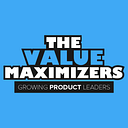Scrum Events — Product Backlog Refinement
Quick Reminder: What is Scrum?
Scrum (n): A framework within which people can address complex adaptive problems, while productively and creatively delivering products of the highest possible value.
— The Scrum Guide —
The Scrum framework consists of roles, events, artifacts and rules. Each part of the Scrum framework serves a specific purpose and is of vital importance to Scrum’s success and usage. Scrum is a lightweight framework, consisting only of 3 Roles, 3 Artifacts and 5 Events:
- Scrum Roles: Product Owner, Scrum Master and Development Team;
- Scrum Artifacts: Product Backlog, Sprint Backlog, Product Increment;
- Scrum Events: the Sprint, the Sprint Planing, the Daily Scrum, the Sprint Review and Sprint Retrospective.
Besides the official Scrum Events, there is also an activity that many Scrum Teams do, which is called Product Backlog Refinement (used to be called Grooming).
All the Scrum Events, including Product Backlog Refinment happen during the Sprint. A Sprint is the heart of Scrum, and is time-boxed period of one month or less, in which a “Done”, useable, and potentially releasable product Increment is created. Sprints have consistent durations throughout a development effort. A new Sprint starts immediately after the conclusion of the previous Sprint.
Introduction to Product Backlog Refinement
Product Backlog refinement is the act of adding detail, estimates, and order to items in the Product Backlog. This is an ongoing process in which the Product Owner and the Development Team collaborate on the details of Product Backlog items. During Product Backlog refinement, items are reviewed and revised. The Scrum Team decides how and when refinement is done. Refinement usually consumes no more than 10% of the capacity of the Development Team. However, Product Backlog items can be updated at any time by the Product Owner or at the Product Owner’s discretion.
In your everyday practice, you might also know Product Backlog Refinement as just “Refinement” or “Backlog Grooming”. Beware that these, and other similar, names are all only used in your everyday practice. Officially, this activity is in the Scrum Guide referred to as the activity of Product Backlog Refinement.
Purpose of Product Backlog Refinement
The purpose of Product Backlog Refinement is to add details, estimates and order to the Product Backlog and it’s Product Backlog Items. During Product Backlog Refinement, items are reviewed and revised.
The time-box of Product Backlog Refinement
Product Backlog Refinement isn’t an official Scrum Event, so there is no official time-box. The guideline for Product Backlog Refinement however is that it usually takes no more than 10% of the Development Teams’ capacity.
Who should attend Product Backlog Refinement
The Scrum Team decides how and when Product Backlog Refinement is done. Typically, the Product Owner is in the lead, since the Product Owner is responsible for the Product Backlog. However, the Scrum Team together decides how and when to plan Refinement meetings. Optionally, the Scrum Team may also invite people outside the Scrum Team to Refinement, such as experts or stakeholders, in order to gain technical, business or domain advice.
What is Inspected during Product Backlog Refinement
During Product Backlog Refinement, the following is being Inspected:
- The Product Backlog (adding new items, changing the ordering and removing items for example);
- The contents of the Product Backlog Items (by adding details and estimates for example or by slicing bigger items into smaller items);
What is Adapted during Product Backlog Refinement
During Product Backlog Refinement, the following is being Adapted:
- The Product Backlog (adding new items, changing the ordering and removing items for example);
- The contents of the Product Backlog Items (by adding details and estimates for example or by slicing bigger items into smaller items);
What is the Meeting Flow for Product Backlog Refinement
There are many ways for conducting Product Backlog Refinement meetings. I typically split the meeting flow of a Product Backlog Refinement meeting into three parts:
- Before the meeting;
- During the meeting;
- After the meeting;
Below you will find a flowchart of each of the three parts.
Learn more about the Scrum Events
Hopefully this article about Product Backlog Refinement was valuable to you. If you want to learn more about the other Scrum Events, check out the links below, or join us in a Professional Scrum Product Owner course!
Originally published at www.robbinschuurman.nl on May 22, 2017.

